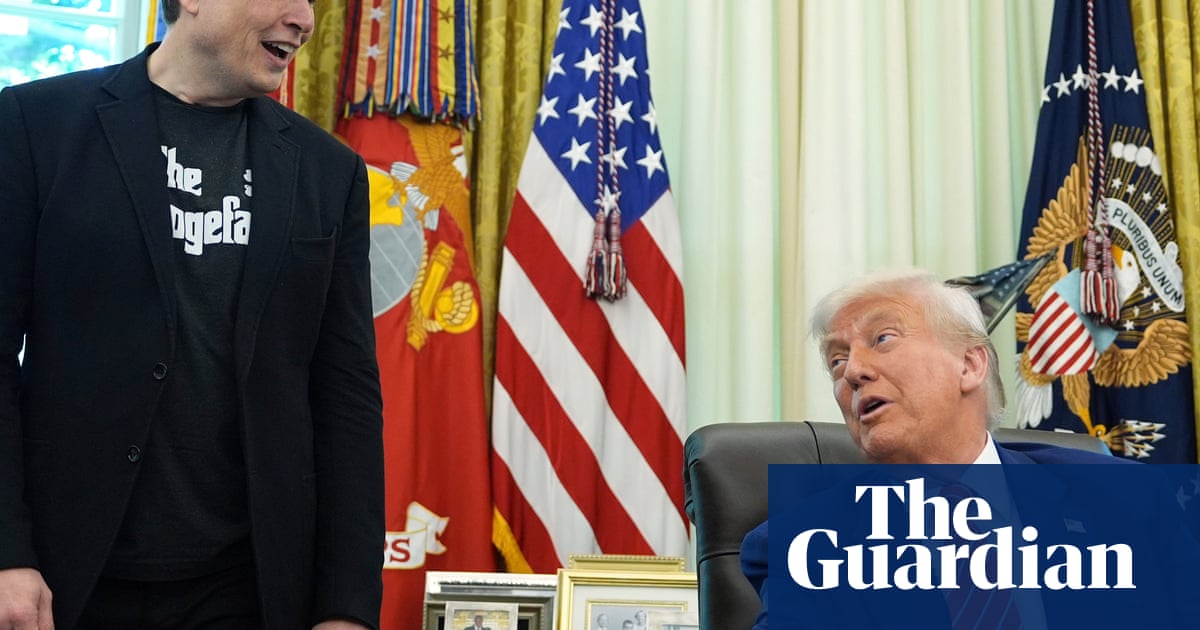The Fallout Between Trump and Musk Sparks Chinese Social Media Frenzy











2025-07-02T05:44:00Z

Recent events surrounding the highly publicized fallout between former President Donald Trump and tech mogul Elon Musk have captured significant attention, particularly among social media users in China. Once seen as an inseparable duo, their relationship has since devolved into a spectacle of political drama that both baffles and entertains observers worldwide.
The latest twist in this saga was Musk's controversial declaration to establish a new political party called the America Party. This announcement followed the passing of Trump’s sweeping tax and spending legislation, which Musk labeled as “insane.” The bill, which is projected to add a staggering $3.3 trillion to the national debt, has been a flashpoint for Musk, who has vowed to unseat legislators who supported Trump’s flagship initiative.
On Wednesday, merely hours after the bill received Senate approval, the hashtag #MuskWantsToBuildAnAmericaParty began to trend on Weibo, a popular Chinese social media platform akin to Musk’s own platform, X. The hashtag garnered over 37 million views, indicating a robust conversation among users keen to discuss Musk’s potential political aspirations.
“If Elon Musk were to found a political party, his tech-driven mindset could inject fresh energy into politics. The potential for change is significant – and worth watching,” commented one user, reflecting a sentiment of cautious optimism. Another user remarked, “When you’ve had enough, there’s no need to keep putting up with it,” capturing the frustration some feel in the current political climate.
One particularly enthusiastic comment encapsulated the general mood, stating, “Brother Musk, you’ve got over a billion people on our side backing you.” This enthusiasm for Musk in China is not unfounded; as the CEO of Tesla and SpaceX, he is revered for his innovative approach to business and technology. Tesla’s electric vehicles have carved out a unique space in the Chinese market, competing effectively against domestic brands. Furthermore, Tesla operates its most significant volume factory in Shanghai, solidifying Musk's presence in the country.
Interestingly, Musk is known to maintain a favorable relationship with Chinese Premier Li Qiang, and his mother, Maye Musk, has also gained fame on social media platforms in China. This admiration for Musk aligns with a broader trend in China, where audiences have shown a penchant for American tech innovators. Books such as Walter Isaacson’s biographies of both Steve Jobs and Musk have achieved bestseller status, underscoring the fascination with these figures.
In contrast, Trump is often perceived in China as an unpredictable figure, whose policies have led to one of the most aggressive trade wars against the country in recent history. Many users on Chinese social media have expressed frustration at the seemingly juvenile arguments between Trump and Musk. “These two grown men argue nonstop over the smallest things – and the whole world ends up knowing about it,” stated one user, while another quipped, “Every day, Musk is basically live-streaming ‘How Billionaires Argue.’”
The flourishing discussions surrounding this narrative on China’s tightly controlled social media platforms suggest that the censors may be allowing some leeway, perhaps perceiving that the political turmoil in the US could serve as an opportunity for commentary or change within China itself.
As this saga continues to unfold, it remains to be seen what the future holds for both Trump and Musk, as well as the implications of their rivalry on the broader political landscape.
 Elena Petrova
Elena Petrova
Source of the news: The Guardian